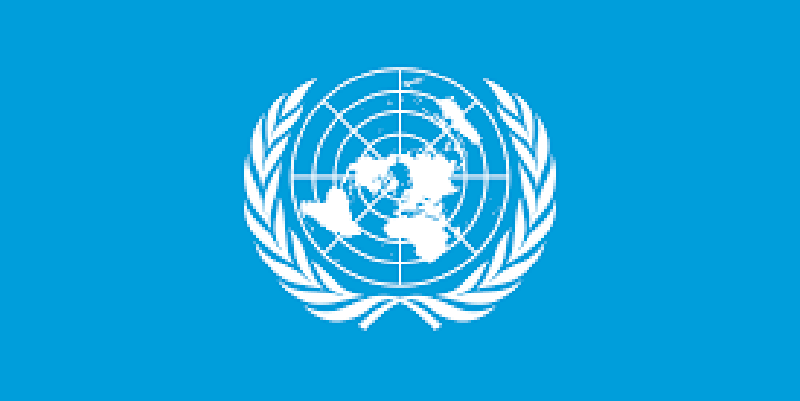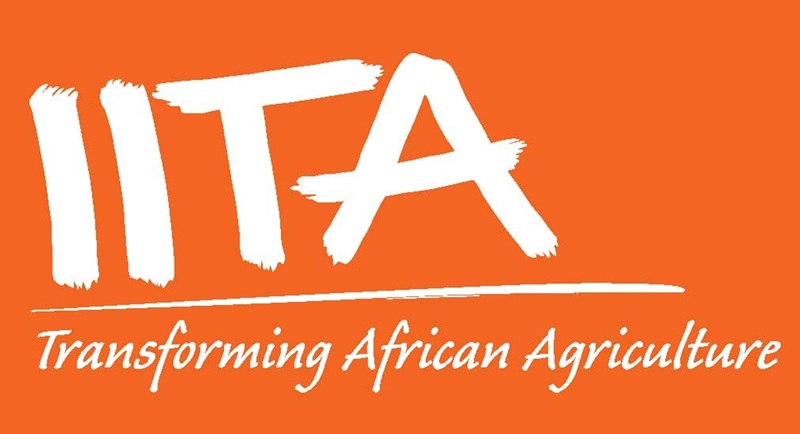Cadre organisationnelCe poste est situé dans le Bureau régional pour l’Afrique de l’Ouest et du Centre (ROSEN), Office des Nations Unies contre la drogue et le crime (ONUDC) à Dakar, Sénégal. L’Officier chargé de la prévention du crime et de la justice pénale (traite des êtres humains et trafic de migrants) travaillera sous la direction générale du Représentant de l’UNODC, ROSEN, et sous la supervision directe de l’Officier supérieur chargé de l’application de la loi, qui dirige le sous-programme Crime organisé, trafic illicite et terrorisme à ROSEN, et en coordination avec le Coordinateur du programme (région du Sahel). Le poste peut nécessiter des déplacements importants (25%).
Pour plus d’informations sur l’UNODC, veuillez consulter notre site Internet : www.unodc.org.
Responsabilités
Within assigned authority, the incumbent will perform the following specific duties:
• Promote the work of UNODC against trafficking in persons and smuggling of migrants in West and Central Africa within the overall framework of the Protocol to Prevent, Suppress and Punish Trafficking in Persons, Especially Women and Children and the Protocol against the Smuggling of Migrants by Land, Sea and Air, both supplementing the United Nations Convention against Transnational Organized Crime.
• Support the implementation of UNODC’s Regional Strategy against Trafficking in Persons and Smuggling of Migrants in West and Central Africa, and make substantive efforts to mobilize resources based on the strategy and collaboration with relevant partners.
• Provide substantive support in coordinating the team working on trafficking in persons and smuggling of migrants at the Regional Office. In particular, support the planning, implementation and monitoring of technical assistance projects and activities provided to the Governments in the region on trafficking in persons and smuggling of migrants, especially in Senegal, Gambia and Côte d’Ivoire. Support and guide National Project Coordinators, Consultants and administrative staff working in the team, especially in the above-mentioned countries.
• Participate in the coordination, cooperation and liaising with intergovernmental and non-governmental organizations and institutions active in areas related to trafficking in persons and smuggling of migrants at the regional or country level.
• Identify technical assistance needs, undertake needs assessments and technical assistance missions in the region.
• Provide substantive support to the design, facilitation and delivery of technical expertise for the implementation of technical assistance activities at regional and national level, including on legislative and policy frameworks; national training and other capacity-building assistance for criminal justice actors (including law enforcement); national training curricula of the relevant training schools and standardized training materials; as well as the review, revision, dissemination and use of UNODC training and capacity-building tools.
• Compile information on best practices in the response to trafficking in persons and smuggling of migrants and facilitate regional information sharing.
• Coordinate and closely follow-up on the Liaison Magistrate Initiative; promote international and regional cooperation on criminal matters; assist in the negotiations of bilateral or multilateral treaties on trafficking in persons and smuggling of migrants; assist Government officials on cooperation matters upon request.
• Provide substantive input and assistance to drafting and preparing several written documents (speaking points, media releases, publicity information, website postings, Newsletter stories) as well as organize and participate in awareness-raising events on trafficking in persons and smuggling of migrants.
• Participate in events, workshops, conferences and networks as required.
• Collect and analyze data to identify trends or patterns and provide insights through graphs, charts, tables and reports using data visualization methods to enable data-driven planning, decision-making, presentation and reporting.
• Perform other work-related duties as required.
Compétences
• Professionalism: Has in-depth knowledge and specialization in the field of human trafficking and migrant smuggling. Has knowledge of policies and practices in crime prevention and criminal justice, as well as of the mandate of the United Nations Office on Drugs and Crime. Has good analytical and problem-solving skills, including ability to identify and contribute to the solution of problems/issues; has sound judgment skills. Has ability to analyze and interpret data in support of decision-making and convey resulting information to management. Shows pride in work and in achievements; demonstrates professional competence and mastery of subject matter; is conscientious and efficient in meeting commitments, observing deadlines and achieving results; is motivated by professional rather than personal concerns; shows persistence when faced with difficult problems or challenges; remains calm in stressful situations. Takes responsibility for incorporating gender perspectives and ensuring the equal participation of women and men in all areas of work.
• Teamwork: Works collaboratively with colleagues to achieve organizational goals; solicits input by genuinely valuing others’ ideas and expertise; is willing to learn from others; places team agenda before personal agenda; supports and acts in accordance with final group decision, even when such decisions may not entirely reflect own position; shares credit for team accomplishments and accepts joint responsibility for team shortcomings.
• Client Orientation: Considers all those to whom services are provided to be “clients” and seeks to see things from clients’ point of view; establishes and maintains productive partnerships with clients by gaining their trust and respect; identifies clients’ needs and matches them to appropriate solutions; monitors ongoing developments inside and outside the clients’ environment to keep informed and anticipate problems; keeps clients informed of progress or setbacks in projects; meets timeline for delivery of products or services to client.
Formation
An advanced university degree (Master’s degree or equivalent) in law, criminology, social sciences, international relations, political science, public administration or related field is required. A first-level university degree in similar field in combination with two additional years of qualifying experience may be accepted in lieu of the advanced university degree.
Expérience professionnelle
A minimum of five years of relevant professional experience in crime prevention and criminal justice at national and international levels is required.
Demonstrated work experience in dealing with trafficking in persons and/or smuggling of migrants at gradually increasing levels of responsibility is required.
Work experience in international criminal justice matters is desirable.
Work experience with project formulation, implementation and monitoring and exposure to international development cooperation is desirable.
Work experience with the United Nations or similar international organization is desirable.
Work experience in West Africa and Central Africa is desirable.
Work experience in data analytics or related area is desirable.
Connaissances linguistiques
English and French are the working languages of the United Nations Secretariat. For the position advertised, fluency in English and French is required. Knowledge of another United Nations official language is an advantage.
Méthode d’évaluation
Evaluation of qualified candidates may include an assessment exercise and a competency-based interview.
Notice spéciale
This temporary position is available for ten months. Actual filling of this position and actual duration of the assignment is subject to availability of funding. If the selected candidate is internal staff member from the United Nations Secretariat, the selection may be administered as a temporary assignment.
While this temporary assignment may provide the successful applicant with an opportunity to gain new work experience, the selection for this position is for a limited period and has no bearing on the future incumbency of the post.
Staff members of the United Nations common system organizations who will reach the mandatory age of separation or retirement within the duration of the current temporary need period are not eligible to apply. Submitting an application or selection for the current temporary job opening does not delay or increase the mandatory age of separation.
Retirees above the mandatory age of separation who wish to be considered for the current temporary job opening must indicate the reason for their last separation as « retirement. » Such retirees shall not be employed by the Organization, unless (a) the operational requirements of the Organization cannot be met by staff members who are qualified and available to perform the required functions; and (b) the proposed employment would not adversely affect the career development or redeployment opportunities of other staff members and represents both a cost-effective and operationally sound solution to meet the needs of the service.
At the United Nations, the paramount consideration in the recruitment and employment of staff is the necessity of securing the highest standards of efficiency, competence and integrity, with due regard to geographic diversity. All employment decisions are made on the basis of qualifications and organizational needs. The United Nations is committed to creating a diverse and inclusive environment of mutual respect. The United Nations recruits and employs staff regardless of gender identity, sexual orientation, race, religious, cultural and ethnic backgrounds or disabilities. Reasonable accommodation for applicants with disabilities may be provided to support participation in the recruitment process when requested and indicated in the application.
The United Nations Secretariat is committed to achieving 50/50 gender balance and geographical diversity in its staff. Female candidates are strongly encouraged to apply for this position.
Dakar is classified in the A category (family duty station).
Charte des Nations Unies
Aux termes du paragraphe 3 de l’Article 101 de la Charte des Nations Unies, la considération dominante dans le recrutement du personnel doit être la nécessité d’assurer à l’Organisation les services de personnes possédant les plus hautes qualités de travail, de compétence et d’intégrité. Ne seront pas retenues les candidatures des personnes qui ont commis des violations du droit international des droits de l’homme, des violations du droit international humanitaire, des actes d’exploitation, d’atteintes ou de harcèlement sexuels, ou au sujet desquelles il existe des raisons plausibles de croire qu’elles ont été impliquées dans la commission de tels actes. L’expression « exploitation sexuelle » désigne le fait d’abuser ou de tenter d’abuser d’un état de vulnérabilité, d’un rapport de force inégal ou de rapports de confiance à des fins sexuelles, y compris mais non exclusivement en vue d’en tirer un avantage pécuniaire, social ou politique. On entend par « atteinte sexuelle » toute atteinte physique de nature sexuelle commise par la force, sous la contrainte ou à la faveur d’un rapport inégal, ou la menace d’une telle atteinte. Le harcèlement sexuel s’entend de tout comportement déplacé à connotation sexuelle raisonnablement propre ou de nature à choquer ou humilier, lorsqu’il entrave la bonne marche du service, est présenté comme une condition d’emploi ou crée au lieu de travail un climat d’intimidation, d’hostilité ou de vexation, et lorsque ce comportement est assez grave pour justifier le licenciement de son auteur. La candidature de personnes qui ont commis des infractions autres que des infractions mineures au code de la route ne sera pas retenue.
Sera dûment prise en considération l’importance d’un recrutement effectué sur une base géographique aussi large que possible. Aucune restriction ne sera imposée par l’Organisation à l’accès des hommes et des femmes, dans des conditions égales, à toutes les fonctions, dans ses organes principaux et subsidiaires. Le Secrétariat de l’Organisation des Nations Unies est un espace non-fumeurs.
La considération dominante dans l’engagement, la mutation ou la promotion du personnel est la nécessité de s’assurer les services de personnes possédant les plus hautes qualités de travail, de compétence et d’intégrité. En acceptant une offre d’engagement, les membres du personnel sont soumis(es) à l’autorité du Secrétaire général, qui peut leur assigner l’une quelconque des tâches ou l’un quelconque des postes de l’Organisation des Nations Unies, conformément à l’alinéa c) de l’article 1.2 du Statut du personnel. Dans ce contexte, tous les membres du personnel recrutés sur le plan international sont tenus de changer de fonctions périodiquement à l’intérieur d’un même lieu d’affectation ou dans un autre lieu d’affectation, dans les conditions fixées par le Secrétaire général.
Les candidats sont invités à respecter scrupuleusement toutes les instructions disponibles sur la plateforme de recrutement en ligne Inspira. Pour des informations plus détaillées, ils ou elles peuvent consulter le manuel d’instructions pour le candidat, en cliquant sur le lien hypertexte « Manuels » sur le côté supérieur droit de la page d’accueil de leur compte Inspira.
Les candidatures feront l’objet d’une évaluation et d’un examen préalables sur la base des informations soumises conformément aux critères d’évaluation de l’avis de vacance de poste et aux dispositions législatives internes applicables de l’Organisation des Nations Unies, notamment la Charte des Nations Unies, les résolutions de l’Assemblée générale, le Statut et le Règlement du personnel, les textes administratives et les directives. Les candidats doivent fournir des informations exhaustives et précises conformément aux instructions fournies sur la plateforme Inspira. Une fois la candidature envoyée, aucune modification, suppression ou révision, ni aucun ajout ou changement ne pourra être fait. Il sera procédé à une vérification des références des candidats faisant l’objet d’une attention particulière pour s’assurer de l’exactitude des renseignements qu’ils ont fournis dans leur candidature.
Les avis de vacance de postes publiés sur le Portail des carrières sont retirés à 11:59 p.m. (heure de New York), le jour de la date limite de dépôt des candidatures.
Aucun frais de dossier
L’ONU NE PERÇOIT DE FRAIS À AUCUN STADE DU RECRUTEMENT (DÉPÔT OU TRAITEMENT DE LA CANDIDATURE, ENTRETIEN, FORMATION, ETC.), ET ELLE NE DEMANDE AUCUNE INFORMATION BANCAIRE.





